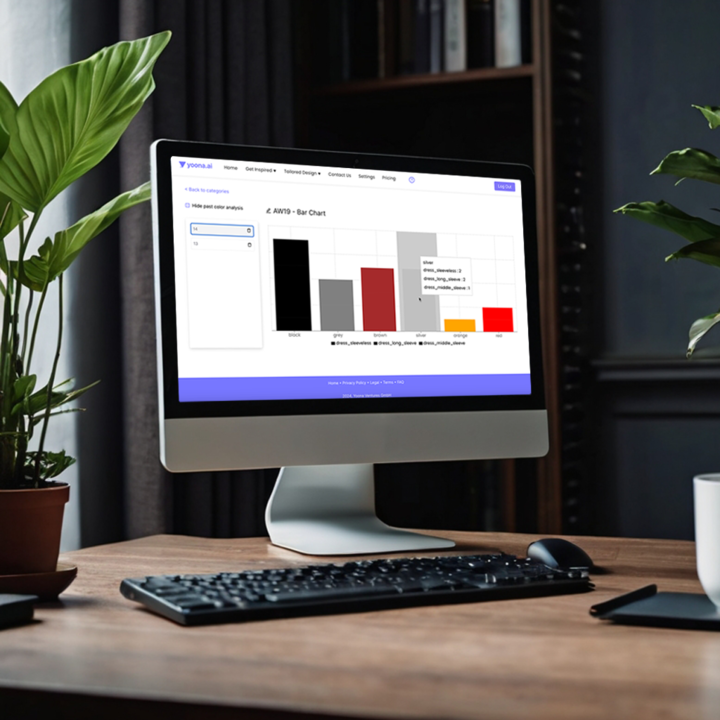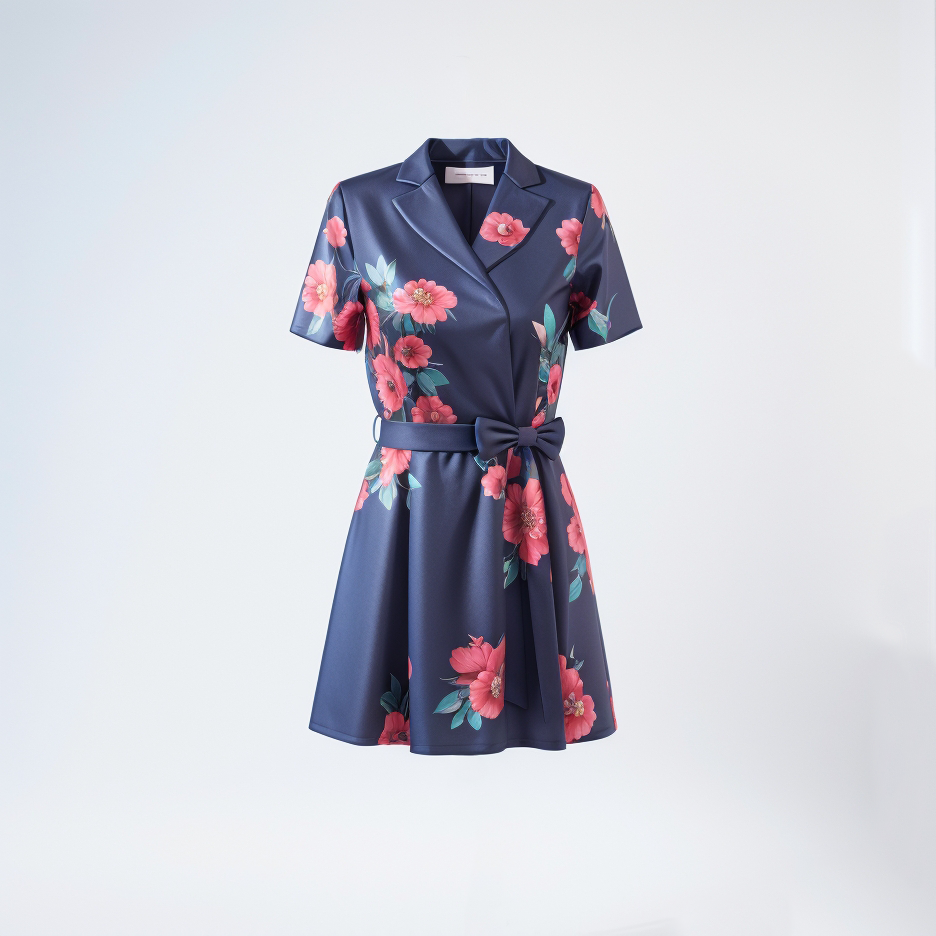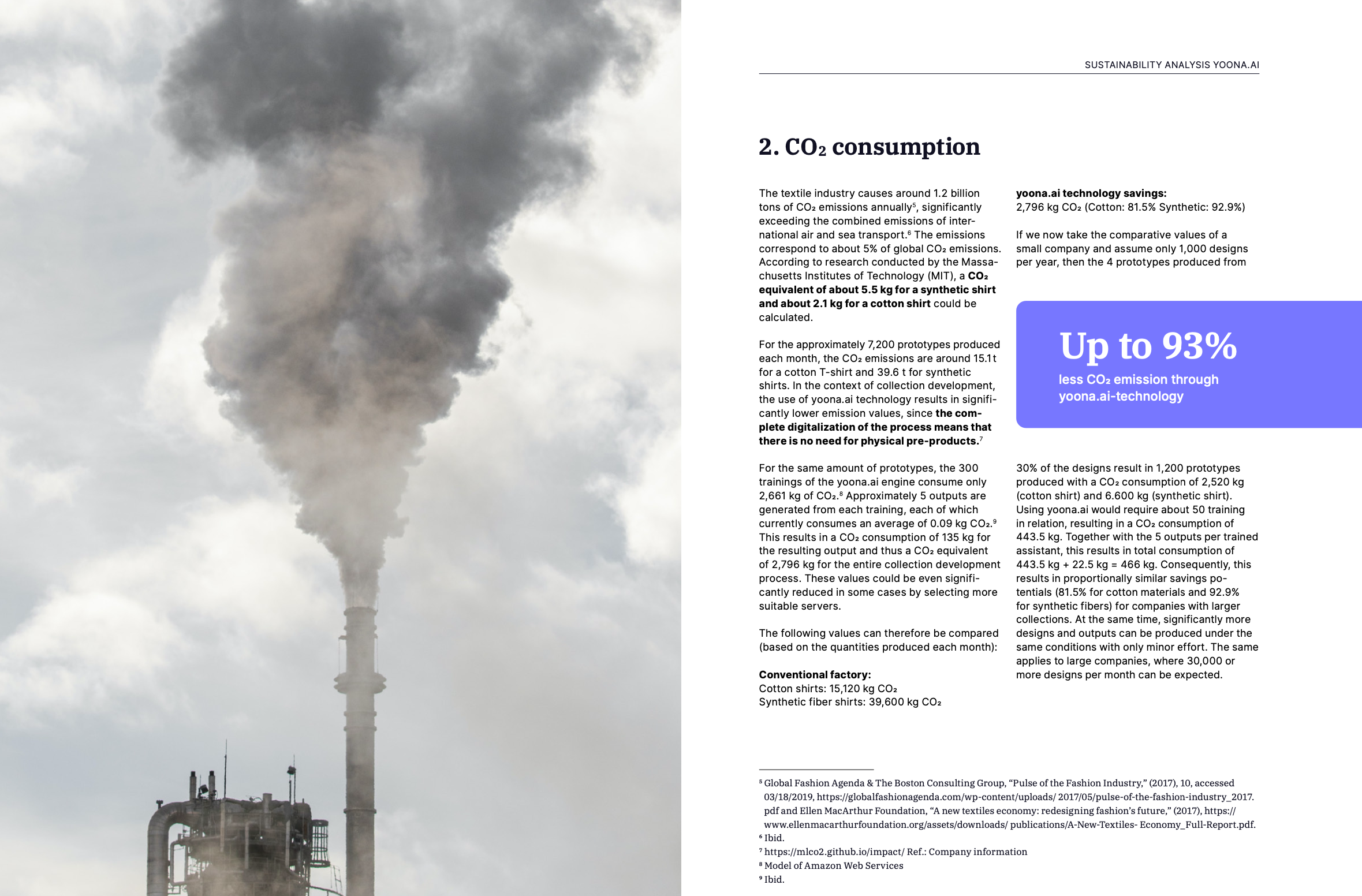Adapting to the New Luxury Era: How AI Empowers Fashion Brands to Stay Trend-Responsive, Market-Specific, and Efficient
The luxury market is entering a pivotal phase, marked by shifting consumer behaviors and slowing growth. After a decade of expansion, driven by demand in both established and emerging markets, the industry is now grappling with reduced sales and consumer spending priorities. According to Bain & Company (2023), luxury brands are facing heightened pressure to innovate and adapt to this changing landscape.
This new era calls for creativity, market customization, and operational efficiency, and AI-driven solutions like yoona.ai are poised to help luxury brands respond to these challenges. Here's how:
1. More Reactive to Trends
Speed and agility are now crucial in the luxury sector, as traditional volume-driven strategies fall short in a market where consumers are prioritizing exclusivity and unique experiences over mass appeal. A recent report by McKinsey & Company (2023) highlights that being able to quickly react to consumer trends is becoming a competitive necessity.
By using yoona.ai’s AI-powered trend analysis, brands can reduce their time to market by 85.67%. This capability is essential as brands face declining sales. For example, LVMH recently reported a 5% drop in fashion and leather goods sales in Q3 2024, while Kering’s Gucci saw a staggering 25% decrease . In this climate, yoona.ai's ability to generate data-backed insights enables brands to quickly develop and release products that align with fast-moving consumer preferences, ensuring they remain relevant in a volatile market.
yoona.ai Data Science Tool
2. Market-Specific Designs
The growing importance of regional markets such as India, Southeast Asia, and the Middle East is highlighted by Bain & Company’s Luxury Goods Worldwide Market Study (2023), which emphasizes the need for localized approaches. As consumer demand weakens in previously dominant markets like China, brands must tap into these emerging regions with tailored designs that resonate with local preferences and cultural nuances.
Yoona.ai leverages machine learning and market data to help brands create market-specific collections. This allows luxury houses to stay competitive by offering designs that appeal directly to regional tastes while maintaining the exclusivity and craftsmanship that define luxury. In a market where 16% of Kering’s overall sales dropped in Q3 2024, focusing on regional customization can offer a path to stability and growth.
Dress generated by yoona.ai for South Asia
3. Streamlined Design Process
Efficiency in the design process is essential, particularly as brands aim to balance creativity with cost control and sustainability. As noted in McKinsey’s Technology in Fashion Report (2022), sustainability is becoming a central pillar for luxury brands, and consumers are increasingly demanding eco-conscious practices.
Yoona.ai addresses this need by streamlining the entire design process, from concept to execution, leading to a 93% reduction in material waste. This not only makes the design process more sustainable but also more efficient, freeing designers to focus on creativity rather than administrative tasks. With Hermès projected to report its slowest growth since 2021, focusing on quality and sustainability, supported by tools like yoona.ai, becomes a key strategy for long-term success.
See full white paper report here https://www.yoona.ai/sustainability-paper
Enhanced Insights Using Data:
Luxury Market Growth: The Bain & Company study (2023) outlines slowing growth across the luxury sector, reinforcing the need for brands to adopt reactive technologies to keep up with changing consumer preferences.
AI-Powered Trend Analysis: McKinsey (2023) stresses that brands that can integrate AI to predict and react quickly to market shifts will have a clear advantage over those that rely on traditional methods .
Sustainability as a Key Differentiator: According to the McKinsey Technology Report (2022), sustainability is increasingly linked to luxury, and tools like yoona.ai that help brands reduce material waste are essential for future competitiveness .
Conclusion
As the luxury industry navigates shrinking sales, changing consumer preferences, and regional opportunities, the ability to stay trend-reactive, develop market-specific designs, and streamline the design process will be critical. The era of relying on heavy marketing and celebrity endorsements to drive demand is over.
With tools like yoona.ai, brands can adopt a data-driven approach that ensures agility, market relevance, and sustainability, positioning themselves to thrive in this new era of luxury retail.
Bibliography/References:
Bain & Company (2023). Luxury Goods Worldwide Market Study. Retrieved from: https://www.bain.com/global/insights/luxury-goods-worldwide-market-study-2023/
McKinsey & Company (2023). The State of Fashion 2023: Resilience in the Face of Uncertainty. Retrieved from: https://www.mckinsey.com/industries/retail/our-insights/state-of-fashion
BoF & McKinsey (2022). The State of Fashion Technology Report 2022. Retrieved from: https://www.businessoffashion.com/reports/technology/the-state-of-fashion-technology-report-2022/
LVMH Group (2024). Quarterly Financial Report Q3 2024. Retrieved from: https://www.lvmh.com/investors/financial-documents/
BoF (2023). How AI is Changing the Luxury Industry. Retrieved from: https://www.businessoffashion.com/articles/technology/ai-luxury-industry-transformation/
Yoona.ai Internal Data (2024). Sustainability and Efficiency Metrics for Fashion Brands Using AI Solutions.



